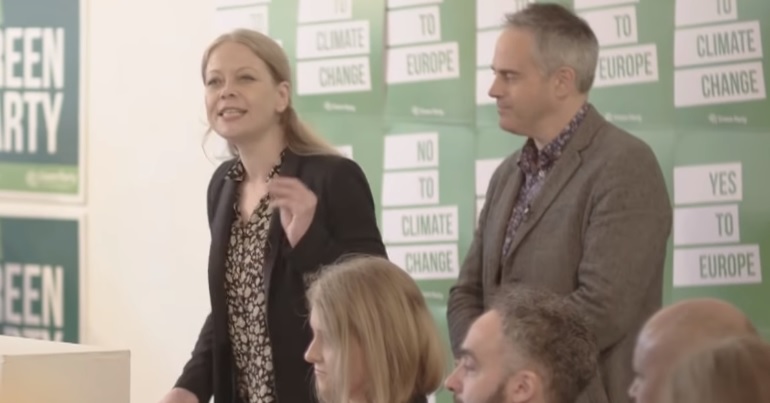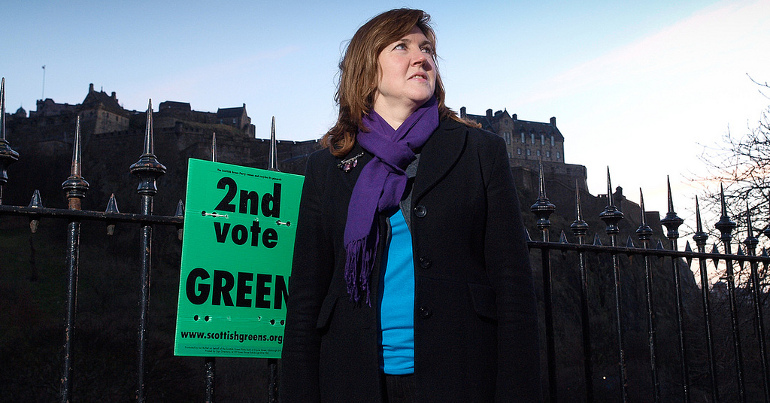Green councillors demand emergency funding to tackle coronavirus crisis – UK Green news round up issue 56
Green councillors demand emergency funding to tackle coronavirus crisis

With the coronavirus crisis rumbling on, local councils are increasingly facing pressure on services and their finances. And this week, Green councillors across England and Wales have written to the government demanding emergency funding to support their communities. A letter, sent by the Association of Green Councillors on behalf of Green councillors on over 120 councils, was addressed to Robert Jenrick – the secretary of state for housing, communities and local government.
The letter argued that the existing £1.6 billion emergency funding provided for local councils has been insufficient, claiming “it is simply not enough”. It read:
It is clear now, several weeks into lockdown measures, with the peak of illness not yet reached, that
the initial £1.6 billion in additional funding for local authorities is nowhere near sufficient for the
community response needed to tackle the consequences of this crisis.Government announcements have indicated that the unrestricted emergency funding is intended to
cover increased demand on: social care, support for rough sleepers, increased homelessness,
domestic violence, emergency food support, and many other urgent needs. It is simply not enough.
The letter went on to suggest that councils could lose up to half of their spending power this year if the lockdown were to last for just three months.
Green Party of England and Wales co-leader Sian Berry, who is also a councillor in Camden said:
Councils are stepping up and providing vital services to our communities. Vulnerable people are relying upon them for a rapid increase in support. But, after a decade of cuts and in the face of lost income as a result of the crisis, budgets are rapidly reaching breaking point.
We urge the government to act immediately so that we can continue to do this essential work and not add further strain to the NHS and other essential services.
Berry was joined in these calls by Green Party councillor Zoe Nicholson – leader of Lewes District Council. Nicholson said:
We have been at the front line of the response within our community, paying out for additional food packs and housing the homeless, all amid a significant loss of income.
Like lots of other district councils we [Lewes] received a measly 0.02% per cent of the additional money the government previously announced for local authorities. We have spent this money at least ten times over just this week. The long-term financial position looks bleak for councils like ourselves who are providing essential front line services.
However, the letter didn’t only call emergency funding for councils. It also demanded that the government create a new settlement for council funding and the relationship between local and national government for the long term. It read:
We are not simply asking for more temporary or conditional grants. We need general funding and, although immediate relief and reassurance is imperative, we also need a new longer-term, mutually respectful relationship between democratically elected local authorities and central Government.
Amelia Womack and Clare Bailey join cross-party call for support for domestic abuse victims

Several reports have recently found that levels of domestic abuse have increased significantly since lockdown measures were introduced in the UK. And this week, Green Party of England and Wales deputy leader Amelia Womack and Green Party in Northern Ireland leader Clare Bailey joined a cross-party call for increased support for victims of domestic abuse. Bailey and Womack joined representatives of the SNP, Plaid Cymru and the Alliance Party in writing to first secretary of state Dominic Raab to demand the government release emergency funding for domestic abuse support.
The letter called for this funding to be released to local councils and to devolved administrations in Wales, Scotland and the North of Ireland to. It read:
In an effort to support those affected, we are a cross party group of politicians writing to ask you to release emergency funds to local authorities, for the purpose of providing safe places to stay for victims of domestic abuse.
Furthermore, the Westminster Government should also release emergency funding directly to devolved administrations so that they too may take appropriate action in their respective nations.
Womack called for urgent action from the government to stop services from being “overwhelmed”. She said:
The coronavirus crisis is extremely worrying for everybody, but the lockdown conditions are putting victims of domestic abuse at even more risk than usual.
We know that there has been a spike in domestic abuse since the lockdown began and vital services are being overwhelmed by the surge in cases.
The government has acknowledged there’s an issue but it now needs to immediately provide emergency funding to local authorities so they can offer safe housing for victims of domestic abuse, as women’s charities and organisations have already called for.
Greens demand more coherent action on “scandalous mess” in care

As the coronavirus crisis grips the country, public services have come under increasing pressure. Care services are among those hardest hit. And this week prominent Greens have called for coherent action to tackle the spread of coronavirus throughout the care system.
Writing for Left Foot Forward, Green peer Jenny Jones described the situation as a “scandalous mess”. She wrote:
a combination of inadequate guidance, shortage of supplies and post hospital admissions has meant that the disease has been imported into a large number of care homes.
The absence of testing has then allowed the more rapid spread within care homes as neither the source of the infection nor its victims are rapidly identified.
It is a tragic mess. A scandalous mess but one that we need to deal with urgently. The first step is for the government to start being honest with us.
Jones continued:
Instead of a clear message from government that production of PPE was a key task, we reached that conclusion ourselves via the pleas of doctors, nurses and other key workers. That has to change.
If care homes are seen as a genuine part of the front line, will they be able to access urgent tests the way hospitals can now do?
She was joined in this criticism by Green Party of England and Wales co-leader Jonathan Bartley. He accused the government of doing “next to nothing” to stop coronavirus spreading through care homes. He said:
It is unconscionable that the government seems to be doing next to nothing to prevent or even track the spread of coronavirus among older people in care homes, while leaving carers, who are often among the most poorly paid members of society, to risk their lives and deal with this growing crisis by themselves.
Bartley also demanded the government put in places measures to address this. He added:
The government must come forward with a comprehensive plan of testing, provision of PPE and quarantine in order to slow the spread any further.
And Scottish Greens health spokesperson Alison Johnstone made similar points, singling out the failures of the Scottish Government:
the Scottish Government must work with the care sector to ensure urgent action is taken to prevent any further infections in care homes, including the necessary PPE for all staff at all times and more testing.
The World Health Organisation has been very clear that testing is a vital component in tackling this pandemic. The number of tests being carried out per day in Scotland has barely changed since the beginning of the month. We recognise that increasing capacity is challenging, but it must be made an absolute priority by this Government if we’re to contain the virus, save lives and, eventually, come out of lockdown.
Young Greens continue “unprecedented” programme of political education

The Young Greens of England and Wales has continued its “unprecedented programme of training and political education” this week. The programme of training and talks this week saw former Green Party principal speaker Derek Wall speak to over 100 Young Greens activists via Zoom on “Green alternatives to capitalism”.
This week will see the Young Greens host openDemocracy co-editor Adam Ramsay for a talk titled: “Radical democracy: the British State and the failure of ‘politics’ in a time of crisis” on April 20. At the time of writing over 100 people had signed up for the talk.
Writing in advance of the event for Bright Green, Young Greens treasurer Matthew Hull wrote “we’ll be discussing the state of our politics and how to reshape our democracy in a time of crisis”. Promoting the talk, he also wrote:
Imagine a more vibrantly democratic political system and culture, where demands and expectations of government were of a different nature and altogether greater. What would our response look like? It’s possible that they could have paved the way for a reappraisal of the role of the British state and economy: how is it made up? What and who is it for? And where does power truly lie within it?
The event with Ramsay will be followed by talks from: Green Party co-leader Sian Berry on housing justice; War on Want executive director Asad Rehman on climate change, capitalism and colonialism; and Young Greens activist Macsen Brown on the future of the school strikes movement.
Alison Johnstone – “people need to know there’s a light at the end of the tunnel” when it comes to lockdown

This week brought confirmation that the UK will undertake at least a further three weeks of lockdown. But commentators and politicians have also been discussing extensively the strategy by which the country will exit lockdown.
Among those to raise that this week was Scottish Green Party health spokesperson Alison Johnstone. She argued that a lockdown exit strategy must be prepared. In doing so, she suggested this would only be possible once an effective mechanism for testing, tracing and isolating those with COVID-19 symptoms has been established. Johnstone said:
It is absolutely right that lockdown should continue to keep us safe, but in this fourth week, many will understandably be starting to feel cooped up and isolated. People need to know there’s a light at the end of the tunnel and a clear exit strategy to get us there.
The scientific advice is clear. Swift deployment of a test-trace-isolate strategy is the only way we will be able come out of lockdown in the future and prevent further virus peaks. Scotland must build the capacity to do this now. That means the ability to test everyone with symptoms and trace all the people they have been in contact with.
Green Party equality and diversity coordinator shares David Icke 5G conspiracy theory
Despite the efforts of news outlets and scientists, conspiracy theories linking the origins of coronavirus to 5G continue to spread through the internet. This week the same conspiracy theories were spread by a member of the Green Party of England and Wales executive.
The Green Party of England and Wales’ equality and diversity coordinator Rashid Nix shared a video of inter-dimensional lizard enthusiast David Icke putting forward the conspiracy theory, accompanied with the caption “interesting views”:
DAVID ICKE – THE TRUTH BEHIND THE CORONAVIRUS PANDEMIC: COVID-19 LOCKDOWN & THE ECONOMIC CRASH – Interesting views https://t.co/wZ1ZhmlCXg
— Rashid Nix (@RashidNix) April 14, 2020
Icke has been subject to extensive allegations of anti-semitism, a point which was highlighted by a number of Green Party activists in response to Nix.
Jewish Greens committee member Joshua Alston described Icke as a “massive antisemite”:
What is this? David Icke is a massive antisemite who believes that the world is controlled by Jews/Lizard People. Why are you sharing this?
— Joshua Alston (@Joshua_Alston1) April 14, 2020
And Joe Lever – a Green Party councillor on the Isle of Wight tweeted:
Hi Rashid. David Icke is a wild conspiracy theorist who’s expressed anti-Semitic views, thinks there’s a ‘transgender agenda’, says gender equality has gone ‘past the balance point’ where men are now discriminated against, & thinks climate change is a hoax.
— Joe Lever (@JoeLever89) April 14, 2020
Nix later tweeted an apology, in which he apologised for “any upset caused” and stated: “I do not agree/support his [Icke’s] comments.” Despite the apology, the original tweet sharing Icke’s 5G conspiracy has not been deleted.



Clearly a case for more, and more ‘co-ordinated’ cross party action. And Zoom seems the way at the moment..? (Even though you can’t sing, using it ?!